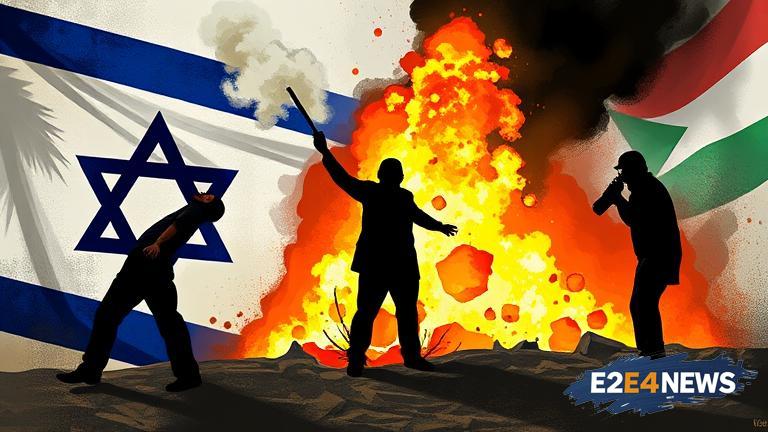The Israeli government has announced that it is exploring alternative options to the current ceasefire talks with Hamas, citing deepening uncertainty and concerns over the group’s commitment to a lasting peace. This development comes amidst rising tensions in the region, with both sides exchanging blame for the stalled negotiations. The Israeli government has expressed frustration over Hamas’s refusal to meet certain conditions, including the release of Israeli hostages and the dismantling of the group’s military infrastructure. In response, Hamas has accused Israel of attempting to undermine the peace process and impose its own terms on the negotiations. The situation has been further complicated by the involvement of other regional actors, including the Palestinian Authority and Egypt, which have been attempting to broker a ceasefire agreement. Despite these efforts, the prospects for a lasting peace remain uncertain, with many analysts warning that the current impasse could lead to a further escalation of violence. The Israeli government has stated that it is committed to finding a peaceful resolution to the conflict, but will not compromise on its core security demands. Hamas, on the other hand, has vowed to continue its resistance against Israeli occupation, citing the need to protect Palestinian rights and interests. The international community has urged both sides to return to the negotiating table, warning that a failure to do so could have catastrophic consequences for the region. The United States, in particular, has been actively engaged in efforts to revive the peace process, with officials expressing concern over the potential for further violence and instability. The European Union has also weighed in, calling for a renewed commitment to the ceasefire agreement and an end to hostilities. As the situation continues to unfold, many are left wondering what the future holds for the region and whether a lasting peace can be achieved. The Israeli government’s decision to explore alternative approaches to the ceasefire talks has been seen as a significant development, with many analysts interpreting it as a sign of frustration and desperation. Others have warned that such a move could lead to a further escalation of violence, as Hamas may view it as a sign of weakness or a lack of commitment to the peace process. The Palestinian Authority has expressed concern over the potential consequences of a failed peace process, warning that it could lead to a further fragmentation of Palestinian society and a loss of faith in the ability of leaders to deliver a lasting peace. Egypt, which has been playing a key role in mediating the conflict, has urged both sides to remain committed to the ceasefire agreement and to avoid any actions that could be seen as provocative or destabilizing. The international community has a critical role to play in supporting the peace process and encouraging both sides to return to the negotiating table. This includes providing economic and diplomatic support to the Palestinian Authority, as well as encouraging Israel to take steps to address the underlying grievances of the Palestinian people. Ultimately, a lasting peace will require a fundamental transformation of the relationship between Israel and the Palestinians, one that is based on mutual respect, trust, and a commitment to the principles of justice and equality. The current impasse in the ceasefire talks is a reminder that this goal remains elusive, but it is not impossible. With determination, courage, and a willingness to compromise, it is still possible to achieve a lasting peace in the region. The Israeli government’s decision to explore alternative approaches to the ceasefire talks is a significant development, one that reflects the deepening uncertainty and frustration that has characterized the peace process in recent months. As the situation continues to unfold, one thing is clear: the need for a lasting peace in the region has never been more urgent.
